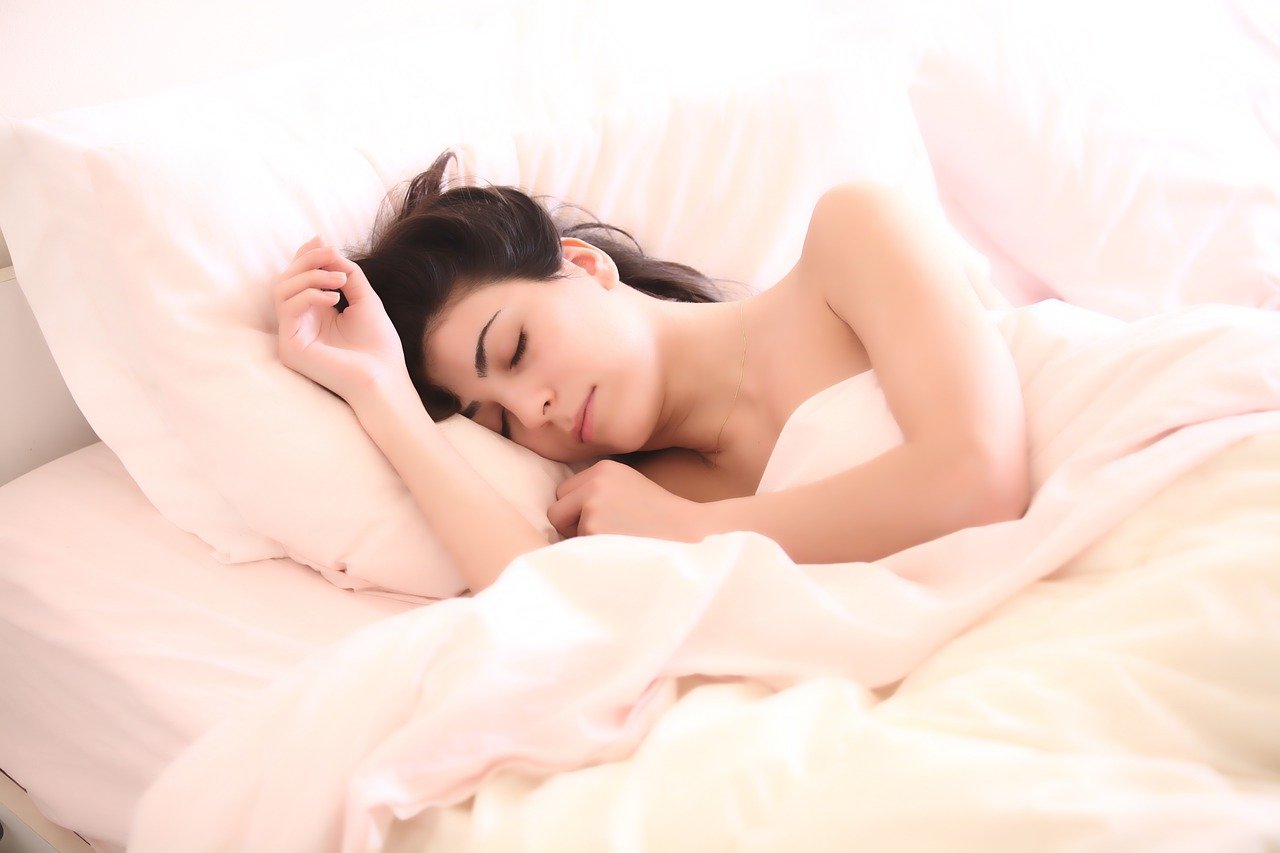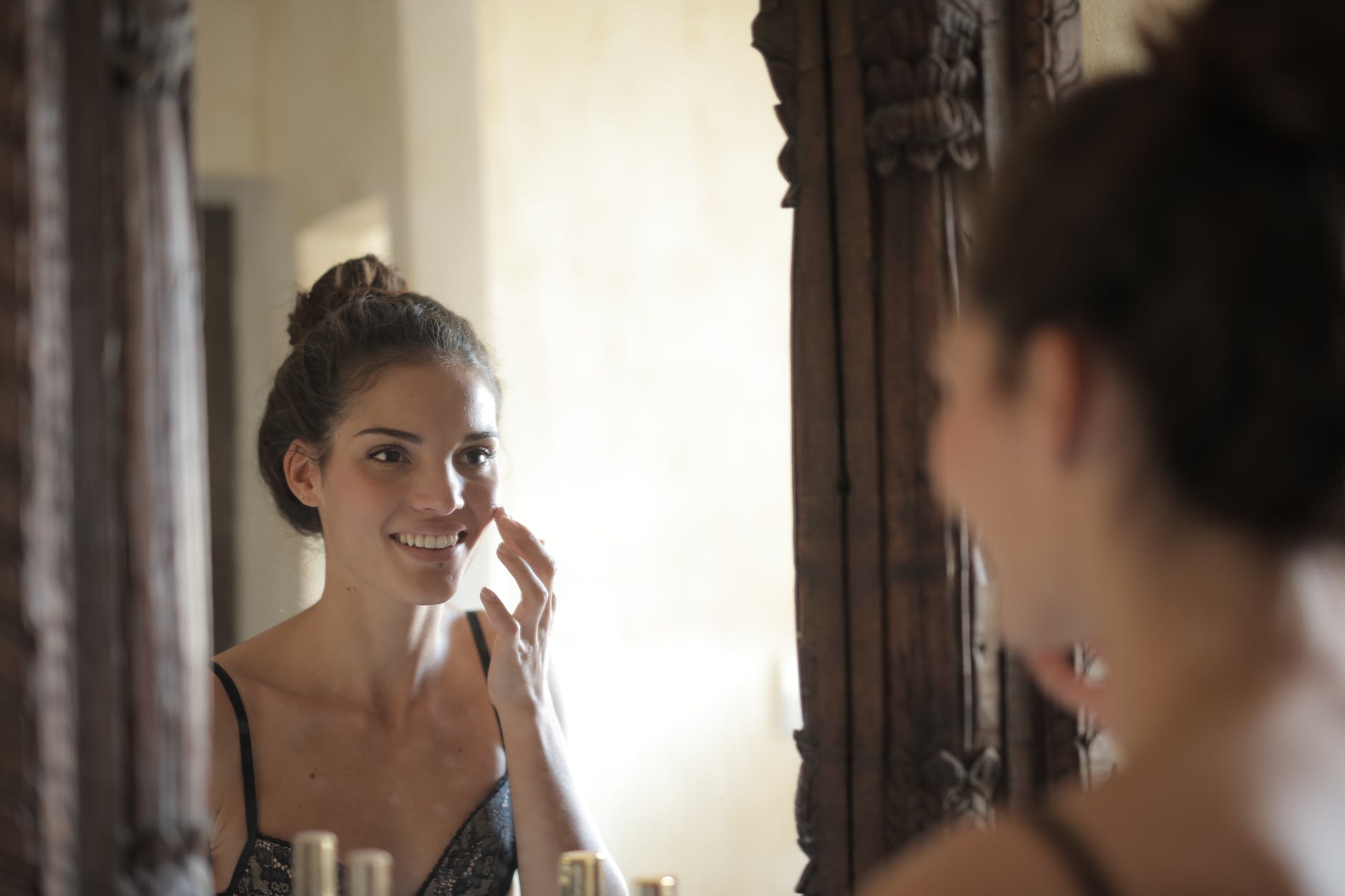
How is Sleep Related to Skin Health?
Practically everyone knows that getting a good night's sleep is essential for a person's health and general well-being. However, many people overlook the fact that getting enough sleep is also very important for skin health. When you're trying to maintain the right beauty routine, the amount of sleep you get every night plays a key role in dictating how your skin will look and feel. While you're sleeping, your body will recover and repair itself, which can improve your appearance significantly. If you want your skin to look as healthy and beautiful as possible, try to get around 7-9 hours of quality sleep every night.
If you get six hours of sleep or less every night, your appearance has likely changed for the worse. These changes, however, aren't long-lasting and can be corrected in as little as 2-3 weeks by getting enough sleep every night. Skin needs to regenerate in order to get rid of dying skin cells and toxins. During this regeneration process, any damaged cells and DNA will also be repaired, which is why skin can appear to be fresher, more radiant, and more youthful after getting enough sleep. This article provides a detailed look at how sleep affects the health of your skin and what you can do to improve your skin health.
If you get six hours of sleep or less every night, your appearance has likely changed for the worse. These changes, however, aren't long-lasting and can be corrected in as little as 2-3 weeks by getting enough sleep every night. Skin needs to regenerate in order to get rid of dying skin cells and toxins. During this regeneration process, any damaged cells and DNA will also be repaired, which is why skin can appear to be fresher, more radiant, and more youthful after getting enough sleep. This article provides a detailed look at how sleep affects the health of your skin and what you can do to improve your skin health.
Key Takeaways:
-Sleep health is extremely important for the skin for the regeneration process to occur.
-On average a person should be receiving 7-9 hours of sleep every night to keep the skin radiant and youthful.
-On top of getting enough sleep each night, additionally you should try to moisturize, wash your face, drink plenty of water daily, sleep on your back, and avoid morning uv rays with blackout curtains.
How Does Sleep Affect Your Skin?

While a good night's sleep will improve the quality and appearance of your skin, it's important to understand that one poor night of sleep can create substantial problems with the appearance of your skin. Even a single night of bad sleep could cause such issues as:
- The corners of your mouth drooping
- A higher amount of fine lines and wrinkles on your skin
- Paler skin than normal
- Eyes that are swollen
- Hanging eyelids
- Darker circles under your eyes
If you believe that you're sleeping for the right amount of time every night but find that your skin doesn't appear to be rejuvenated in the morning, it's possible that the presence of a sleep disorder is causing you to have a lighter sleep than you should be having. When you want to sleep for longer hours but are unable to, you may suffer from insomnia or a similar sleep disorder. The presence of any sleep disorders can be diagnosed in a sleep study.
A sleep study is a complex test that can effectively diagnose sleep disorders of all types. During the study, many recordings will be taken of your heart rate, your breathing rate, the oxygen levels of your blood, your brain waves, your leg movements, and your eye movements. Since many different measurements will need to be taken, sleep studies occur at sleep disorder units, which are usually situated within a specialized sleep center or a hospital. The test will also record your general sleep patterns to determine if these patterns are irregular. The types of sleep disorders that can be diagnosed during a sleep study include:
- Unusual behaviors like sleep walking
- Sleep apnea or similar disorders that affect your breathing
- Chronic insomnia that can't be explained
- Narcolepsy
- A disorder that causes periodic limb movements
By detecting a sleep disorder, it's possible to effectively treat the disorder, which should help you return to normal sleep patterns and get a better night of sleep. When you want to give yourself great skin, there are numerous steps that you can take, the most important of which is to have a full night of sleep. If you find that it's difficult to get quality sleep, it's possible that there are other issues that need to be addressed. For instance, you may be sleeping in a position that's not conducive to having a good night's sleep. By adhering to the following steps, your skin health should improve significantly.
The first and likely most important thing that you can do to improve the health of your skin is to get a full night of sleep. To understand just how important this is, keep in mind that poor sleep can cause skin to age faster, which increases your chances of developing wrinkles and fine lines at a relatively young age. Poor sleep can also cause you to be less satisfied with the quality of your skin, which only serves to worsen your self-esteem. When you aren't well-rested, your skin won't recover as well when affected by environmental stressors like exposure to the sun.
While it's perfectly fine for you to have a day every now and then when you don't get enough sleep, you should try to average at least 7-9 hours of sleep every day. If you haven't been sleeping well as of late, your internal clock may need to be changed, which can be done with this guide. You should also think about purchasing a wearable fitness tracker to keep track of how much you sleep every night.

The next thing that you should do is to make sure that you wash your face before going to bed. As you sleep and your skin begins to repair itself, your blood flow will improve, your muscles will start to relax, and your collagen levels will be rebuilt, all of which enhance the health and appearance of your skin. However, the presence of dirt and grime on your face can harm these efforts and mitigate the improvements that occur on your skin over night.
All you need to do is apply a gentle cleanser, which will get rid of excess oil, dirt, and makeup that remains on your skin at the end of the day. If these irritants remain on your skin at night, they can sink in and cause ample amounts of damage to the underlying skin cells. This damage includes:
1. Have a Full Night of Sleep
The first and likely most important thing that you can do to improve the health of your skin is to get a full night of sleep. To understand just how important this is, keep in mind that poor sleep can cause skin to age faster, which increases your chances of developing wrinkles and fine lines at a relatively young age. Poor sleep can also cause you to be less satisfied with the quality of your skin, which only serves to worsen your self-esteem. When you aren't well-rested, your skin won't recover as well when affected by environmental stressors like exposure to the sun.
While it's perfectly fine for you to have a day every now and then when you don't get enough sleep, you should try to average at least 7-9 hours of sleep every day. If you haven't been sleeping well as of late, your internal clock may need to be changed, which can be done with this guide. You should also think about purchasing a wearable fitness tracker to keep track of how much you sleep every night.
2. Wash Your Face Before Bed

The next thing that you should do is to make sure that you wash your face before going to bed. As you sleep and your skin begins to repair itself, your blood flow will improve, your muscles will start to relax, and your collagen levels will be rebuilt, all of which enhance the health and appearance of your skin. However, the presence of dirt and grime on your face can harm these efforts and mitigate the improvements that occur on your skin over night.
All you need to do is apply a gentle cleanser, which will get rid of excess oil, dirt, and makeup that remains on your skin at the end of the day. If these irritants remain on your skin at night, they can sink in and cause ample amounts of damage to the underlying skin cells. This damage includes:
- Rashes
- Inflammation
- Large pores
- Outbreaks of acne
- Dry skin
- Infections
By cleansing your face every night, you should be able to avoid all of these problems, which means that the health of your skin will only improve as you sleep.
3. Moisturize and Drink Plenty of Water Before Bed
While it's very important that you wash your face before you go to bed, this can also cause your face to dry out. Sleeping will invariably dehydrate your skin as well, which is why it's important to moisturize before bed. Drinking ample amounts of water can provide some assistance in keeping your skin hydrated. However, your skin requires a topical moisturizer at night to be properly hydrated. A moisturizer is particularly important if you live within a low-humidity environment.
Practically any moisturizer will do. Consider using oil or a thicker cream to help moisturize your skin. A day moisturizer may also provide you with the results you're looking for. However, the product should be layered in with some petroleum jelly, which is easy to apply to the skin. Likely the best product for this scenario is an overnight mask, which contains ceramides, hyaluronic acid, and peptides that support the production of collagen in the skin.
Hyaluronic acid is an essential component that provides your skin with its structure. When applied to your skin, hyaluronic acid can treat facial redness and eczema, help with wound healing, increase the elasticity of your skin, and moisturize your skin. Overnight masks are simple to apply and can support the regeneration of your skin.
4. Try to Sleep on Your Back Rather than Your Stomach or Sides

In the event that you're having trouble sleeping on your back, there are special pillowcases you can obtain that will allow you to sleep on your side without damaging your skin. Skin irritation can be minimized with a pillowcase that's made from silk or satin. You should also try to keep your head elevated to reduce the possibility of a nasal drip, snoring, or acid reflux. These issues can interrupt your sleep patterns and worsen the quality of your sleep. To keep your head elevated, consider adding an extra pillow or purchasing a thicker pillow than your current one.
5. Keep your Curtains Closed
Ultraviolet rays from the sun can damage a person's skin more than anything, which is why it's important to do what you can to protect your skin from sun exposure. While it's almost certainly nighttime when you're sleeping, the sun may already be out when you wake up in the morning, which means that your skin could be damaged while you're sleeping. To avoid this problem, make sure that you keep your curtains closed as you sleep. The best way to reduce exposure to the sun is by getting some blackout curtains, which are able to block nearly 100 percent of the rays from the sun when closed.
Final Thoughts on Importance of Sleep for Your Skin
Getting enough sleep every night is very important for the continued health of your skin. Without enough sleep, it's likely that wrinkles will develop and your skin will take longer to regenerate, which can leave you with a poor appearance. Along with the aforementioned tips and suggestions, there are several additional steps that you can take to sleep better at night. For instance, you should think about adding a humidifier to your room. As mentioned previously, your skin should be moisturized when you go to sleep at night if you want it to be fresh and rejuvenated in the morning. Humidifiers are designed to add moisture to the air, which should keep your skin from becoming dehydrated.
You should also think about obtaining blue light glasses, which help to prevent blurry vision and eye strain. Try not to use screens in the 2-3 hours before you go to bed. Eating before bed can also create health issues and disrupt your sleep. You can avoid this problem by not eating for at least two hours before going to bed. With these tips in mind, you should be able to get a rejuvenating sleep that bolsters your skin health and enhances your appearance.











Leave a comment
This site is protected by hCaptcha and the hCaptcha Privacy Policy and Terms of Service apply.